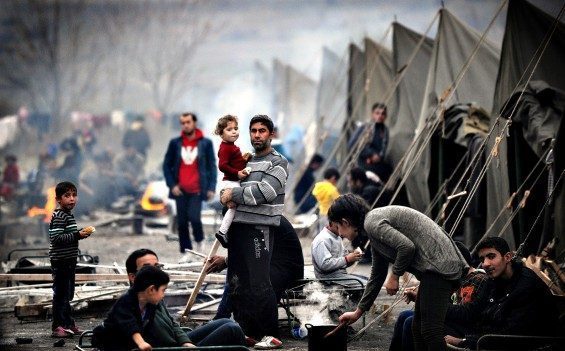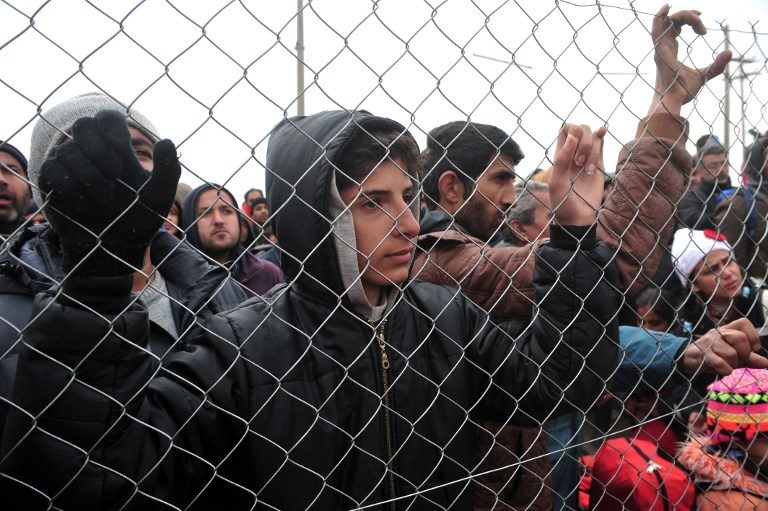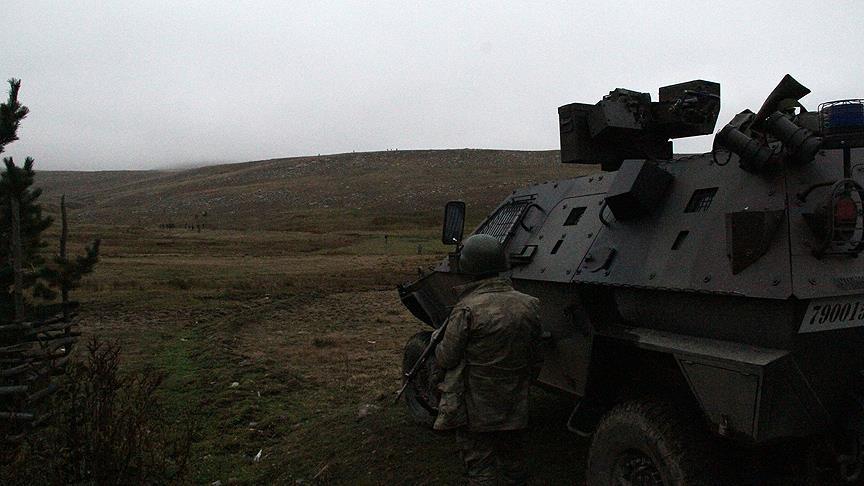
There are now more than 60,000 refugees and migrants in Greece, most of them seeking to travel to Germany and other EU countries.
But they are unable to do so after several eastern European and Balkan states shut their borders earlier this year.
Human rights groups have repeatedly criticised the condition of Greek camps for migrants and refugees, pointing to overcrowding and unsanitary living conditions.
The situation is particularly acute on Lesbos and other eastern Aegean islands facing Turkey, where most of the refugees and migrants land and are held for registration.
Island residents have staged protests to demand the transportation of the migrants to the mainland.
The procedure is part of an EU-Turkey deal designed to limit the flow of refugees and migrants to Greece’s shores.
According to government data, there are more than 13,000 people on five islands in facilities built to house fewer than 8,000.
Most of them are Syrian refugees fleeing civil war, in addition to Iraqis, Afghans, and Pakistanis fleeing violence and persecution at home, who, along with others from the Indian subcontinent and north Africa, are not automatically entitled to asylum in Europe.
On Lesbos itself there are in excess of 5,600 people, more than 2,000 more than the nominal capacity of the camps.
The bigger immediate issue, she and others say, is that accommodation centers on Greek islands, such as Lesbos and Kos, are filled to overcapacity as the arrivals are not being relocated to Europe or returned to Turkey fast enough.
According to the International Organization for Migration, the maximum capacity on the Aegean islands’ reception centers is at 6,850 but as of Sept. 6 the total presence of migrants on the islands is at 12,515. A source from an aid agency working in Greece told TIME that asylum processing centers run by the E.U. are woefully understaffed. After claimants preregister for asylum— which could take up to five months— migrants find themselves waiting a further six months for their initial asylum appointments.
Brawls are common, with many desperate to avoid being returned to Turkey or their home countries after spending a small fortune and risking their lives trying to escape poverty and persecution.



A sharp increase in numbers of migrants arriving to Greece
The number of refugees and migrants fleeing Turkey to Greece has risen slightly in recent weeks, but humanitarian groups familiar with the situation say it is premature to call it a return to the days of last summer, when thousands made the crossing every day.
Frontex said it was the “first noticeable monthly increase” since the EU-Turkey migrant deal came into effect.
According to data from UNHCR, the first week of September saw 1,052 refugees and migrants crossing into Greece, nearly double the number the week before. The month of August saw a total of 3,437 arrivals in Greece, the highest number since April, when 3,650 arrived.
Reports suggest the bump in figures might signal the revival of the Eastern Mediterranean route, which saw close to a million land in Greece in 2015, and the imminent collapse of a deal between Turkey and the E.U. to stem the flow of the displaced.
But Lucy Carrigan, a regional officer for Greece with the International Refugee Council, told TIME it is “hard” to know if the increase is part of a larger trend, as the movement of people has been difficult to predict since the closure of borders on the Balkan route and the E.U.-Turkey deal. “While yes, there has been an increase … the numbers are relatively speaking quite small,” says Carrigan, who works on the Greek island of Lesbos. This time last year, 5,000 people were making the crossing every day.
The EU-Turkey deal is certainly facing hurdles following the failed coup in Turkey. It has successfully slowed the flow; since the deal formally came into effect in March, the numbers of migrants leaving Turkey’s shores for Greece dropped from around 27,000 arrivals in March, to a monthly average of around 2,000 between April and July. But sources in Greece say authorities there have struggled to return recent migrant arrivals to Turkey—under the terms of the deal— as Turkish officials in charge of returns were recalled following the coup attempt.
Many of the some 60,000 migrants and refugees are now left in limbo in Greece, where even finding work in a country struggling with an unemployment rate of around 35% is a challenge. With very few able to leave and more arrivals trickling in, Carrigan says the situation will only become “more and more and more of an issue.”
More than 850,000 migrants arrived on the Greek islands last year, many after risking their lives in unseaworthy boats and dinghies.






